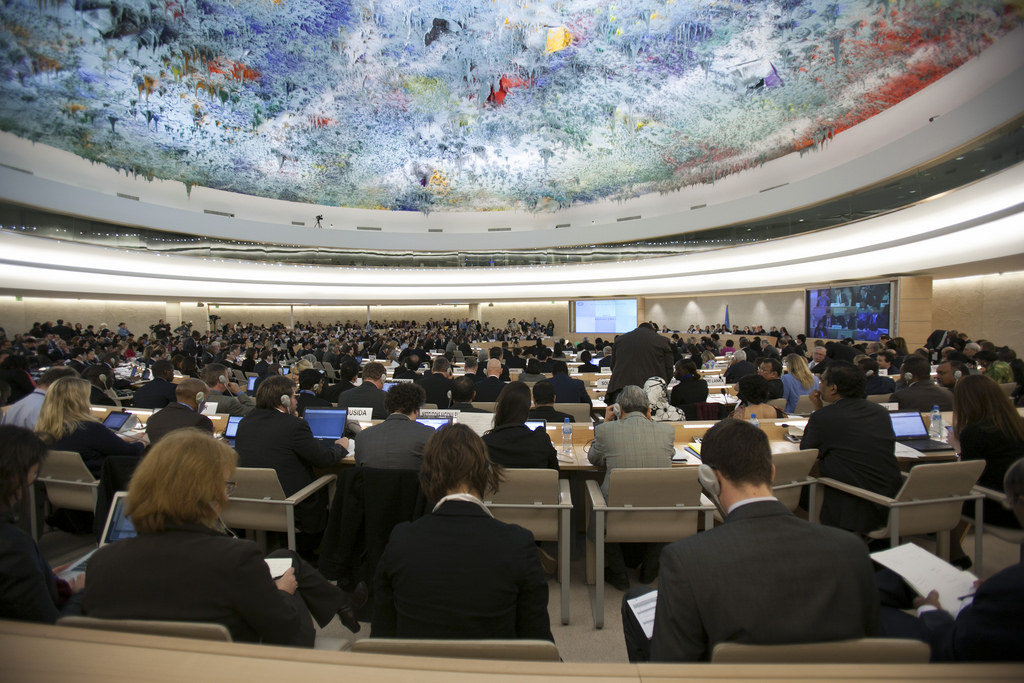
HRC36 | NGOs call on Council Members to take a stand against intimidation and reprisals
All States should take a strong stand to address reprisals and to support a crucial resolution being negotiated at this session of the Human Rights Council. A weak resolution would seriously undermine the ability of the UN system to address the needs on the ground, said 50 national and international NGOs in a letter to Human Rights Council members.
Click here to read the joint NGO letter.
The resolution on reprisals being negotiated at this Council session provides a timely and much needed opportunity for the Council to take a stand on ‘worsening incidences of intimidation and reprisals’, as reported in the Secretary-General’s most recent report on reprisals. The Secretary General stressed that ‘any act of intimidation or reprisal is absolutely unacceptable’.
‘The detention of Ibrahim Metwally in Egypt en route to the Working Group on Enforced and Involuntary Disappearances session is a clear example of the dire need to act now and ensure that the right of all people to communicate with the United Nations is protected’ says ISHR’s Director Phil Lynch.
The resolution tabled by the core group – comprising Ghana, Hungary, Ireland, Fiji and Uruguay – calls on various stakeholders. This call was echoed by the Special Rapporteur on the situation of Human Right Defenders and by Peggy Hicks from the Office of the High Commissioner for Human Rights during a side event on this issue last week as they urged:
- Member States, in particular Council Members, to cooperate with the Council and its mechanisms;
- States to take measures to prevent the occurrence of intimidation and reprisals;
- The Human Rights Council President and Bureau to address and follow up on allegations of acts of intimidation and reprisal; and
- All stakeholders to cooperate with the Assistant Secretary General on human rights regarding the mandate assigned to him by the Secretary General.
‘It is incredibly concerning that a resolution seeking to assist the Council to take a stand on the abhorrent trend of threats and attacks against those engaging with the UN, is being challenged so strongly. It is imperative that the Council adopt a strong and substantive resolution, following positive developments in the African Commission on Human and Peoples’ Rights‘, said Lynch.
Beyond the grave impact on the life of persons concerned and their relatives, intimidation and reprisals also constitute an ‘attack on human rights, the rule of law, and the international and regional mechanisms themselves‘. This was highlighted by ISHR in a statement to the Council earlier this session, when expressing deep regret that ‘four years since the detention and subsequent death of Cao Shunli, we continue to call on the President, this Council, the Assistant Secretary General and Chin to take action on her case’.
‘Any proposal to weaken the resolution should be seen in the context of ongoing, systematic efforts in a number of States to restrict civil society space, the right to communicate with the United Nations and its effectiveness and legitimacy’, said ISHR’s Legal Counsel and reprisals focal point Tess McEvoy.
‘If this is how defenders engaging at the UN are treated, it incidates a disturbing picture of the situation for defenders nationally. We call on all Member States to take action to address reprisals at the UN level in an effort to protect human rights on the ground’, added McEvoy.
Contact: Tess McEvoy, [email protected].
Photo: U.S. Mission Photo by Eric Bridiers.
